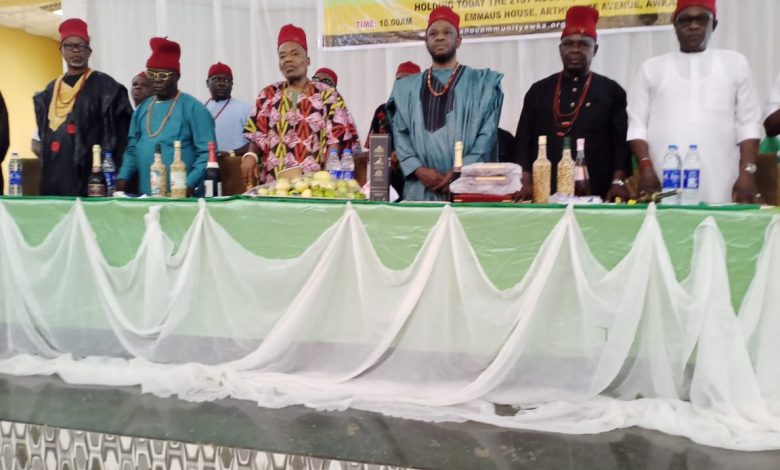Community leader calls for action against cultism, warns against blaming Awka big men
Security

Ozo Jeff Nweke, convener of Ezinano Community’s security summit, made a passionate appeal to residents to take action against the rising violent crime in Awka, which has claimed many young lives.
The security summit, titled “Combating/Preventing Violent Crimes and Cultism in Awka Metropolitan City,” was held at Emmaus House, Arthur Eze Avenue, Awka.
The Ezinano Community, comprising 20 villages, including Umudiana Amikwo, Okperi Amikwo, Igweogige Amikwo, Ishiagu Amikwo, Obunagu Amikwo, Onuko Amikwo, Umukwa, Umuogwali, Umueri, Umuogbunu I, Umuogbunu II, Umudioka, Umuogbu, Umumbele, Umuike, Umuonaga, Umujagwo, Umuoruka, Umuenechi, and Umuokpu, has been severely affected by violent crime and cultism.
Nweke warned against resorting to “shoot on sight” tactics, instead advocating for a collaborative approach with security agencies to address the root causes of the problem.
He lamented the devastating impact of cultism and violent crime on Awka, particularly Ezinano village, which has lost 20 young people.
He attributed the surge in crime to the city’s status as state capital, citing the erosion of values and culture.
Nweke emphasized the need for community-police relations and urged security agencies to apply in-depth knowledge to solve the problem.
He thanked the police and other security outfits for their assistance, while also calling for external help to complement local efforts.
The community leader stressed that Awka residents must take responsibility for their security, saying, “We don’t need only the police commissioner or DSS to defend ourselves. We must defend ourselves.”
The Commissioner of Police, Obono Nnaghe Itam, represented by Deputy Commissioner of Police, Anaetie Eyo, identified inferiority complex, domestic violence, unemployment, and social injustice as underlying causes of cultism.
He traced the origins of cultism to tertiary institutions, where it often begins, but noted that street cultists are often recruited by individuals who have graduated from higher institutions and are seeking a sense of belonging.
Additionally, he blamed politicians for recruiting cultists during elections and highlighted the role of dysfunctional homes in contributing to cultism.
He maintained that security should not be a one-man affair and called for synergy in combating crime.
The CO underscored the vital importance of families and schools in preventing cultism and other crimes. He called for a collaborative effort between these institutions and security agencies to tackle the issue head-on.




